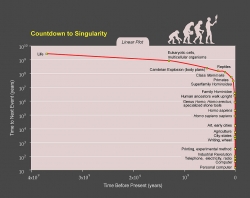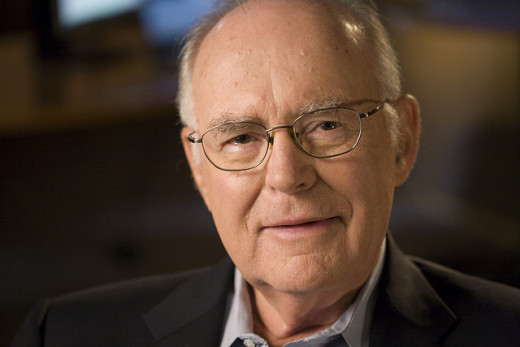Why Does Moore's Law Matter?

Will Technological Acceleration Go On Forever?
And just how long has it been going on? These are important questions that we're beginning to understand now, largely sparked by an observation one Mr. Gordon Moore made while running his very young company called "Intel." The story is an interesting one that has profound implications on where our species is headed and what it is destined to become.

So what exactly is "Moore's Law"?
There is commonly a lot of confusion over what Moore's Law actually says. In the words of OG transistor pioneer Gordon E Moore:
"The complexity for minimum component costs has increased at a rate of roughly a factor of two per year. Certainly over the short term this rate can be expected to continue, if not to increase. Over the longer term, the rate of increase is a bit more uncertain, although there is no reason to believe it will not remain nearly constant for at least 10 years. That means by 1975, the number of components per integrated circuit for minimum cost will be 65,000. I believe that such a large circuit can be built on a single wafer."
Gordon Moore said this in 1965, at a time when the above was anything but a "law." As the years wore on, Moore's prediction was not only proved to be accurate for the short term, but it became something of a self-fulfilling prophecy in the long term. Moore, along with the so-called "Traitorous Eight", left Shockley Semiconductor to found Fairchild in 1957. Years later, Moore and the legendary Robert Noyce went on to start Intel. The rest is, as they say, history (and Moore's Law is alive now more than ever).
Frequently, people will call the general phenomenon of the acceleration of technological growth "Moore's Law" in much the same way that people will use the word "irregardless" to mean "regardless." Like the irregardless/regardless phenomenon, "Moore's Law" has come to mean a much more general term of accelerated expansion. Throughout my writing, I will try to be true to the original definition quoted above, and use simply "accelerated expansion of technology" or something similar to denote the much broader concept.
Before Silicon Valley was Silicon Valley, Shockley Semiconductor, and then Fairchild, and finally Intel and other "Fairchildren" helped pave the way. There's a rich and illustrious documentary at the above link, and you can find out a ton by just reading Wikipedia, but the gist is that it was a pioneering effort by brilliant individuals that has changed the way we live utterly.
All good things must come to an end
When will Moore's Law come to an end?
Moore's Law was first conceived (much by accident) back in 1975. It continues to be a self-fulfilling prophecy today.





